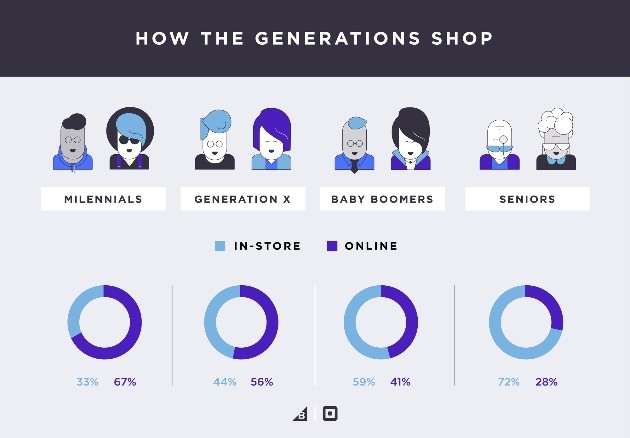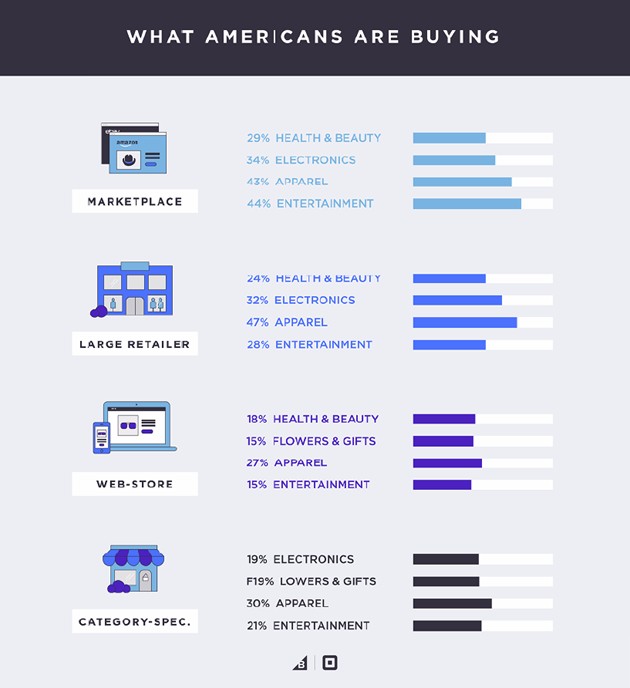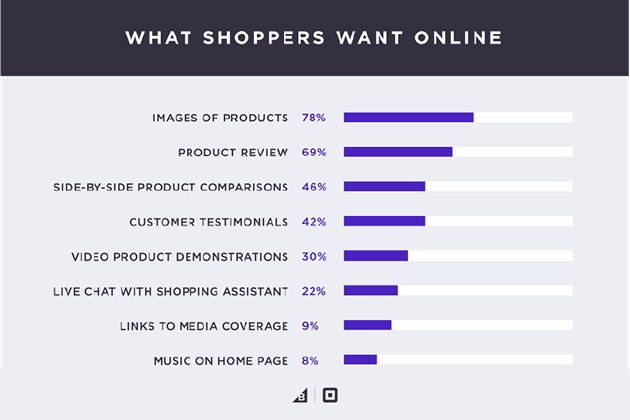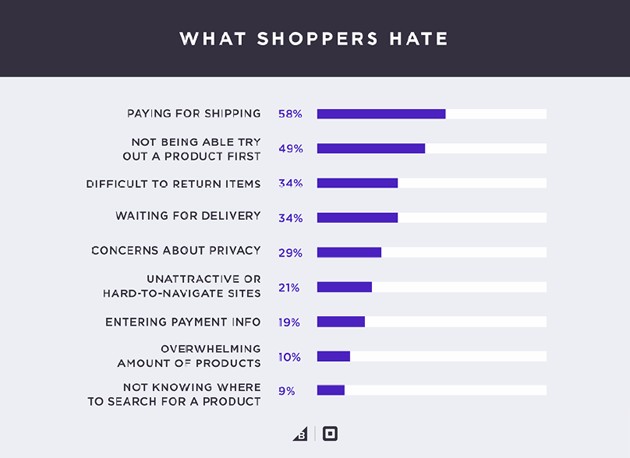Let's play Jeopardy: "40% of Americans say they can't live without it."
What is love? Ennnnnnhh! (Annoying "wrong!" buzzer)
What is sex? Ennnnnnhh!
What is wine? Ennnnnnhh!
What is beef? Ennnnnnhh!
The correct answer is "online shopping."
Hmm. I have to say: I can live without it, but I'd rather live with it.
I buy most stuff online now. Especially during the holiday season, when someone in my family tells me what they want under the tree, you can bet I'm going to track it down on Amazon or some online store and snag it. And I'll be especially fast to pull the trigger if—because of the convenience—an omnichannel retailer offers the product.
What's an Omnichannel Retailer?
According to Square, this is omnichannel retail: "Meeting people on the channels where they are shopping and buying, whether it's in a physical store or an online story or on social media—and connecting the dots between those channels."
And according to BigCommerce, omnichannel retail is this: "Stores selling both online and offline—likely also selling through multiple online channels...Amazon, eBay, Facebook..."
I got these definitions from OmniChannel Retail in 2017: What Brands Need to Know and Modern Consumer Shopping Habits, by BigCommerce and Square.
It's not every day you read reports about omnichannel shopping, but I just did, and I'll be sharing many of its highlights with you here.
Who Shops Online?
The report says, in America, the answer is almost everyone: 96% of those with Internet access. And 51% prefer shopping online.
Naturally, we should slice this data by age groups. Survey says... 67% of millennials prefer to let their keyboards to the buying. Seniors? Not so much: 28%. As you might imagine numbers for the age groups in-between fall in-between.
Have a look:

Know who else loves online shopping? Parents. No group values "ease of purchase" like parents. They spend 61% more than those who aren't parents.
How Much Budget Gets Spent Online?
Preferences aside, when you open the cashbox, the reality is only a fraction of retail sales occurs online. For online shoppers, the research I've been referring to claims 64% of the spending is in stores.
That said, e-commerce sales have been increasing steadily. The report says e-commerce experts predict e-commerce sales will hit $523 billion by 2020, a 56% increase from the $335 billion achieved in 2015.
But here's the deal... and the main point of this article: The most successful retailers are omnichannel commerce businesses. They do business online and in stores.
Because American consumers shop wherever it's most convenient.
Online Shopping Habits
The research highlighted some amazing data about when Americans spend their money online:
- 80% make online purchases monthly or more.
- 30% click a buy button weekly or more.
- Online buyers average five hours per week shopping online.
Where's all this buying taking place?
- 25% of Americans have made online purchases while in a physical store.
- 43% handed over their credit card number from bed.
- Another 20% admit to purchasing from the can or the car.
What's Selling Where?
Here's what Americans are buying—and where:

The study defines marketplace by listing examples, such as Amazon, eBay, and Etsy. Crunch the numbers above, and you'll find online marketplaces place first for health and beauty products, electronics, and entertainment (books, music, and movies). Online marketplaces lose by a whisker to large retailers for apparel sales.
What Factors Into the Buying Decision?
Unsurprisingly, price tops the list. However, according to Christina Dam at Square, price alone doesn't create loyal online shopping customers.
"Customers place more value in the overall experience they have with your brand than in merely getting the lowest price. Service, shipping, convenience, and ease-of-use are all essential to turning customers into repeat customers," she said.
Online shoppers appreciate e-commerce companies that aim to recreate the in-person buying experience:

Which is why online shoppers most want to find product images, reviews, comparisons, testimonials, and video.
The Things That Turn Off Online Buyers
The research not only reported what turns-on online shoppers on, but also got into what turns them off:

That hate list is topped by shipping fees, not being able to try the product, product return hassles, delivery wait times, and privacy concerns.
Are Retailers Selling Online?
The study I've referenced throughout this article includes data from another research project by Square and Mercury Analytics. The goal of that study was to learn more about who's selling what, where, and how. Results from the poll of 1,164 retailers indicated:
- 56% had a physical store.
- Only 34% sold through their websites.
- 40% sold via social media.
- And just 16% sold through Amazon.
Now What?
The research concludes by suggesting retailers must now meet the needs of customers wherever they are—on mobile, desktop, in-store, browsing with apps, or on social media.
So we come full circle. Consumers are rarely loyal to a single brand or a form of shopping.
The omnichannel shop wins more purchases from the omnichannel shopper. Showing up in the various places your buyers are likely to be is your retail recipe for success.




